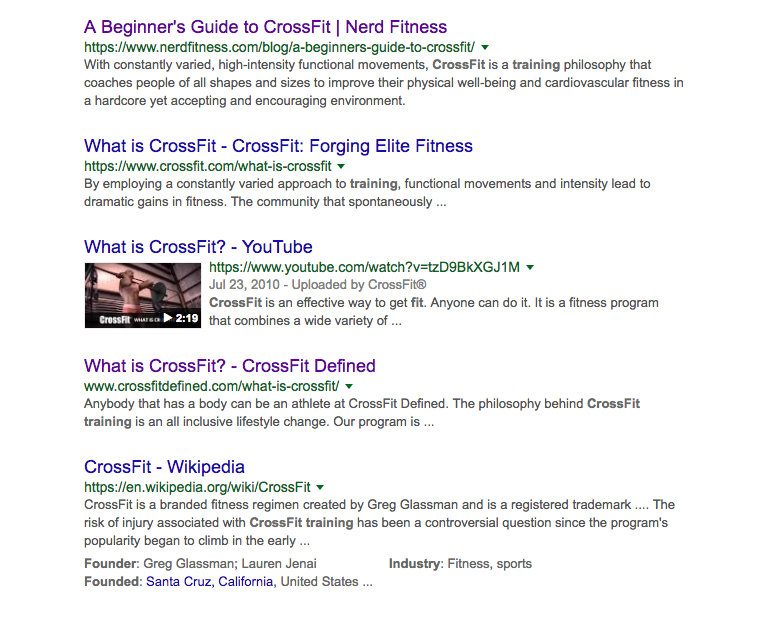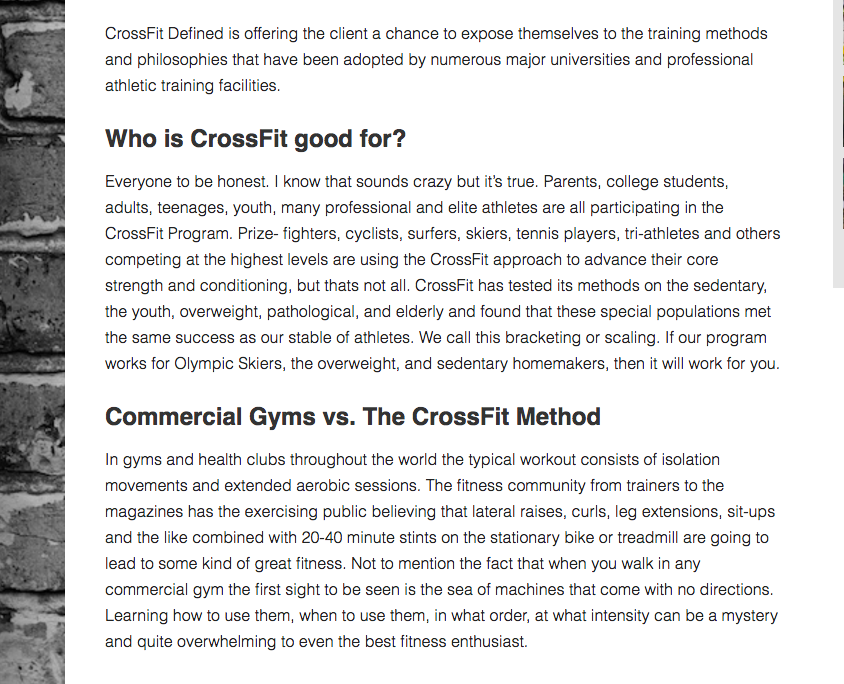Every agent has heard the term keyword. In fact, if you use the internet, you’ve used keywords yourself, but do you really know how they work?
Keyword competition and search engine volatility can be significant obstacles to generating visibility and traffic, making it difficult to rank consistently on the first page of search results. Even established brands and agents don’t always make the first page of Google search results.
Still, understanding keyword usage is critical to your branding efforts and traffic. Keyword planning, research, tracking and constant tweaking are necessary to keep your content visible in search results.
If you want to understand how to use keywords more effectively to grow your traffic and generate more leads – follow the steps and tips provided in this keyword guide for agents.
What is a Keyword?
Keywords are probably the single most important component of your website and its content. They are the signals that search engines use to connect your content with users.
Whenever you type a search term into Google, you’re using a keyword: restaurant, laptops on sale or real estate license, are all examples of keywords you might use to research a product or discover a business.
Using the wrong keywords will keep you invisible to potential buyers and sellers that are searching online.
Strong keywords will make it easy for your target audience to find you in search results.
Why ‘Realtor©’ Is NOT a Good Keyword
As agents, we tend to think our audience is homebuyers and homeowners. We even refer to them as buyers and sellers.
And we think, naturally, that homebuyers and sellers are online looking for a ‘realtor©’ or a ‘real estate agent’.
Guess what?
Your audience is not searching for ‘realtor©’ or a ‘real estate agent’. When a prospect decides they have a need for a real estate agent, they turn to their peers and family for a referral FIRST. Then they will look you up online by your name. If your online presence is convincing, they will move to the next stage and contact you.
Buyers and sellers do not trust agents. That’s why they turn to family and friends for referrals. Converting a cold prospect who discovers you online is extremely difficult because they don’t have a relationship with you.
How Prospects Search For An Agent
A 2014 report by NAR reveals that 54% of buyers and 64% of sellers found their real estate agent through a referral – not the internet. They use the internet to look up the referral, which is usually the LAST stage in their search.
In many cases, unqualified buyers who have not been approved for a mortgage will reach out to a listing agent they discovered online. But they rarely convert into clients.
People who search for the term ‘real estate agent’ are either looking for:
1. information on how to become an agent
2. industry information relevant to real estate professionals
3. a site with a collection of listing agents and testimonials
You will not succeed by targeting people who are searching for a ‘real estate agent’ or ‘realtor’ because the keyword is highly competitive. Large brands pay to use those keywords and you’ll be competing with their budget.
Search engines are more likely to direct users to an organization like NAR, a listing service such as Zillow and Trulia, or a professional marketing resource like placester.com. This is because these websites have established authority and comprehensive information to offer users.
So how can you compete with national brands, agencies and organizations who are using competitive real estate keywords you can’t afford?
Remember these 3 basic principles of your keyword strategy:
- Research keywords that are hyperlocal (local businesses, personalities, events, etc.)
- Use keywords and phrases your real estate competitors are NOT using
- Then include those keywords strategically into your content and metadata
With that in mind, follow this guide to create a successful keyword strategy for your neighborhood website:
7 Important Steps To Successful Keyword Planning
Step 1: Keyword Research
SEO experts and agencies rely on keyword research to guide their content marketing strategy. So should you. You may be using keywords that aren’t popular with your target audience. You could be using highly competitive keywords when there are better, less costly alternatives.
A keyword research tool is a web-based software that can be used to:
- determine the popularity of specific keywords and phrases
- make recommendations for alternative keywords and phrases
- provide critical information on competitor keywords and traffic
- track keyword performance on search engine results pages (or SERP’s)
Investing in a keyword research tool is highly advisable and well worth it. Google provides a free keyword research tool that will get you started. They also provide affordable monthly options.
Top Recommended Keyword Research Tools
- SEMRush for small business owners, entrepreneurs and global brands (monthly and annual pricing options)
- Google AdWords for users with a Google Search console who invest in Google advertising
- Serps.com, a free Google tool for anyone
- Yoast Google Suggest Expander, a free keyword tool for anyone
- Moz Keyword Explorer, an online keyword tool provided by Moz.com (free 30-day trial)
- WordStream Keyword Research Tool, free for anyone
Step 2: Using Keywords and Phrases NOT Found on Your Competitor’s Web site.
Other real estate websites will host listings of homes for sale in your geographic farm, but won’t include details about business owners, shops, services or other homeowners.
Use keywords that will lead your local audience to your local content. Think about the businesses operating in your community, create a list and experiment on Google to discover what content already exists.
The keyword ideas below include information on the monthly search volume. A keyword research tool can provide you with this information as well:
Keyword Ideas For Agents:
| Keyword | Keyword Volume (No. of Monthly Searches on Google) |
| Local | 49.5K |
| Neighbourhood | 60.5K |
| Health food | 4.4K |
| Recipes | 450K |
| Organic food stores | 3.6K |
| Tax help | 4.4K |
| Auto Insurance | 135K |
| Pet supplies | 27.1K |
| Home repairs | 1.9k |
| Home repair | 4.4K
(note the difference one letter can make in search volume) |
| Pilates classes | 1.6K |
These are just some of the target keywords that your prospects are using online every day.
Review your Facebook threads for topics that your peers are talking about. Experiment on Google by searching for the topic using different keywords. You can then check out your competitors to see how they landed on the first page of results.
Find ways to enhance your content by adding visuals, links, an Infographic or more detailed information. Focus on a hyper local audience. It will be easier to rank on the first page of local search results if your content is specific to your geographic farm. Later, you can continue to expand, experiment and tweak your keyword list.
With time, practice and research, you’ll get better at identifying winning keywords.
Step 3. Exploring topics that are NOT on your competitor’s website.
Your value to online visitors lies in your relationships and the unique insights you can offer on the neighborhood, its culture, residents and business owners.
Your competitors aren’t featuring local business owners on their website. They aren’t writing list articles with personal recommendations for local residents. Use your website to drive interest in the neighborhood. Create content that promotes local businesses, organizations, and events by featuring them as experts on your website or blog.
Step 4: Creating Content Using Topical Keywords.
Local residents not only search for businesses and services in their community. They also research topics, products and services.
Health food is a topic that parents and caregivers might research online. You could interview the owner of a local bakery that offers organic desserts. Instead of interviewing the business owner with a series of questions, videotape the business owner making a healthy snack that takes less than 10 minutes to prepare.
During the demonstration, ask the business owner about their thoughts on the neighborhood, their history, hobbies and other interesting details that will humanize your interview.
Title the video – How To Make A Healthy Snack For Kids In 10 Minutes Or Less. By including the keyword phrase ‘healthy snacks for kids’, you’ll attract anyone using the phrase in a search.
If you add a local keyword (i.e. Healthy snacks for kids in Battlefield, MO), you’ll have a better chance of landing on the first page of results because there are far fewer local competitors offering the same information.
Post the video on your YouTube channel and share it on Facebook. Write an accompanying article featuring the business owner, and follow up with a list article entitled ‘5 Local Organic Food Stores In Battlefield, MO.”
By choosing topics your audience is researching, you’ll increase your chances of being discovered online. Your content is more likely to get shared because it’s instructional and solves a problem, which will win you more subscribers or followers. You’ll also be helping local business owners generate additional exposure, which will earn their support for your business!
Topic Ideas For Agents:
- How To Eat Healthy On a Low Budget In…
- Home Repair Tips For New Homeowners In…
- Best Local Furniture Stores With Deals In…
- How to Build a Rooftop Garden In…
- 5 Eco-Friendly Products for Your Home (And where to get them locally)
- Top 5 Golf Local Courses In…
- How To Set Up A Home Office
- Healthy Recipes For Kids
- 5 Local Places To Book Your Next Birthday Party In…
Step 5: Selecting a Target Keyword.
A targeted keyword refers to the specific term that defines your content. Think of it as the specific word or phrase that tells a search engine what your page, video or podcast is all about.
Among many other ranking factors, search engines match your content with users based on your target keywords. You can combine target keywords to attract local visitors as well as users searching a topic.
So, for example:
Target keyword: mortgage lender
Keyword phrase: how to find a mortgage lender
Blog Title: How To Find A Mortgage Lender In Springfield
Your target keyword should always be the subject of your article, video or other content. Keyword phrases can be used to qualify your subject, which provides users and search engines with the context needed to analyze your content’s relevance. An article titled ‘mortgage lenders’ is still quite general. By adding the phrase ”how to find’ you clearly identify to search engines and users that the article is specifically about how to find a mortgage lender.
Step 6: Including Target Keywords In Your Metadata.
Once you’ve decided on your target keyword, be sure to include it in the metadata of your content. Search engines read the metadata for your page and then analyze it for the appropriate keywords and relevance.
What is Metadata?
Specifically, metadata is an HTML element that isn’t visible to visitors. Search engines read the metadata, located in your HTML as meta tags in order to analyze what your page is about. Meta tags make it easier for search engines to match your content with the appropriate keywords used in a search.
The metadata about your page is displayed in the search results as a ‘snippet’ for users to read. A snippet or meta description provides users with a summary of what your content is about, as well as other important details such as the author, source and keywords.

Example of A Google SERP (Search Engine Results Page)
If the meta description that appears in search results is compelling, users will click on the hyperlink to access your content. This is a critical step in a prospect’s experience when searching online for local information.
By including your target keyword in your metadata, you’ll make your content more visible to search engines and make it stand out in search results.
How To Optimize Your Metadata
If you’re a WordPress user or use a content management system for your website (i.e. Wix, Weebly), then optimizing your metadata is quite simple. The Yoast plugin for WordPress allows users to add keywords to their metadata and advises you on ways to enhance your SEO.
Luckily, you don’t have to be an SEO expert to learn the basic meta tags:
Header Tags
The H1 header always refers to a title. Header 1 is the main title of your blog article. It appears in search results as the title of your document, located directly above the URL:

H1 Meta Tag appears as the title and URL link in search results
Always include your target keyword(s) in the Header 1 if you want to be visible in search results.
H2, H3, H4 Headings
Headers 2 – 4 are sub headings that can be used in the body of your text. They don’t appear in the search results but search engines analyze your content for sub headings to determine if your page content actually matches the title.

Example of H2 Subheadings In A Blog Article
Subheadings (H2) with target keyword in a blog article
In the example above, CrossFit is the target keyword.
Your target keywords should appear in at least 1 of your subheadings, in addition to being in the H1 heading or title.
Alt Attributes
Images that you post on your Parkbench neighborhood website can be optimized by adding your target keywords to the alt attribute fields.
Alt attributes are only visible to search engines. The keywords in your alt attribute fields inform Google what your image is about, which increases the chances of your page being discovered by anyone searching for relevant images.
Alt attributes are increasingly becoming important as voice search and smart devices grow in popularity. Eventually, voice search will surpass traditional text searching in volume, transforming how we use keywords in ways we’ve yet to fully understand.
The alt attribute fields can include:
Image Title: add your keyword to the image title
Caption: include a keyword in the image caption
Alternative Text: add a keyword to the description of the image for users who do not render images on their device (i.e. seeing-impaired)
With this in mind, only add keywords where it is relevant. Adding keywords indiscriminately to your images, regardless of relevance, will condemn your content to the bottom of the search results.
Be wary of keyword stuffing as well, another spam tactic penalized by Google and other search engines.
Step 7: Keyword Density Analysis & Tracking.
Search engines also analyze the number of times your target keyword appears in your blog article. We refer to this in SEO as keyword density.
Low keyword density suggests that your content is not informative enough or relevant enough to outrank your competitors in the search results.
Too many keyword instances on your page and you could be penalized by Google for ‘keyword stuffing’ – a popular spamming tactic used by black hat SEO marketers.
For content such as a blog article, there are free online keyword density checkers that will analyze your page in seconds. A general rule of thumb is, for every 100 words of your copy, your target keyword should appear at least once. But please don’t attempt to literally insert a keyword every 100 words!
Track the performance of your keywords regularly.
By tracking the results of each keyword, you’ll identify weak performers from strong ones. Measure the success of your keywords by analyzing traffic as well as engagement. High volume traffic that doesn’t generate engagement could be a sign that you need to make your content more useful to your audience.
Summary
And now you have a comprehensive keyword strategy!
Planning, patience, and research will make you think more strategically about the keywords you choose and how to apply them in your content.
Adding keywords to your metadata will make it easier for prospects in your geographic farm to find you online, whether they search from a desktop or a mobile device.
And finally, using keywords that resonate with your target audience will reduce your reliance on boosted content and CPC campaigns. Your organic traffic will grow year-over-year, driving valuable referral leads to your CRM long after you hit publish on your blog or website.





